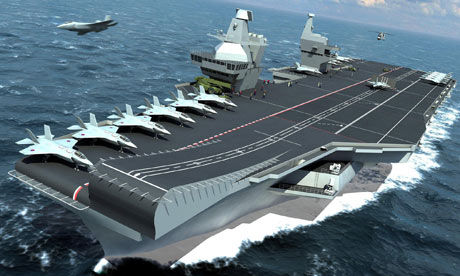
THE first internet boom, a decade and a half ago, resembled a religious movement. Omnipresent cyber-gurus, often framed by colourful PowerPoint presentations reminiscent of stained glass, prophesied a digital paradise in which not only would commerce be frictionless and growth exponential, but democracy would be direct and the nation-state would no longer exist. One, John-Perry Barlow, even penned “A Declaration of the Independence of Cyberspace”.
Even though all this sounded Utopian when it was preached, it reflected online reality pretty accurately. The internet was a wide-open space, a new frontier. For the first time, anyone could communicate electronically with anyone else—globally and essentially free of charge. Anyone was able to create a website or an online shop, which could be reached from anywhere in the world using a simple piece of software called a browser, without asking anyone else for permission. The control of information, opinion and commerce by governments—or big companies, for that matter—indeed appeared to be a thing of the past. “You have no sovereignty where we gather,” Mr Barlow wrote.
The lofty discourse on “cyberspace” has long changed. Even the term now sounds passé. Today another overused celestial metaphor holds sway: the “cloud” is code for all kinds of digital services generated in warehouses packed with computers, called data centres, and distributed over the internet. Most of the talk, though, concerns more earthly matters: privacy, antitrust, Google’s woes in China, mobile applications, green information technology (IT). Only Apple’s latest iSomethings seem to inspire religious fervour, as they did again this week.
Again, this is a fair reflection of what is happening on the internet. Fifteen years after its first manifestation as a global, unifying network, it has entered its second phase: it appears to be balkanising, torn apart by three separate, but related forces.
First, governments are increasingly reasserting their sovereignty. Recently several countries have demanded that their law-enforcement agencies have access to e-mails sent from BlackBerry smart-phones. This week India, which had threatened to cut off BlackBerry service at the end of August, granted RIM, the device’s maker, an extra two months while authorities consider the firm’s proposal to comply. However, it has also said that it is going after other communication-service providers, notably Google and Skype.
Second, big IT companies are building their own digital territories, where they set the rules and control or limit connections to other parts of the internet. Third, network owners would like to treat different types of traffic differently, in effect creating faster and slower lanes on the internet.
It is still too early to say that the internet has fragmented into “internets”, but there is a danger that it may splinter along geographical and commercial boundaries. (The picture above is a visual representation of the “nationality” of traffic on the internet, created by the University of California’s Co-operative Association for Internet Data Analysis: America is in pink, Britain in dark blue, Italy in pale blue, Sweden in green and unknown countries in white.) Just as it was not preordained that the internet would become one global network where the same rules applied to everyone, everywhere, it is not certain that it will stay that way, says Kevin Werbach, a professor at the Wharton School of the University of Pennsylvania.
To grasp why the internet might unravel, it is necessary to understand how, in the words of Mr Werbach, “it pulled itself together” in the first place. Even today, this seems like something of a miracle. In the physical world, most networks—railways, airlines, telephone systems—are collections of more or less connected islands. Before the internet and the world wide web came along, this balkanised model was also the norm online. For a long time, for instance, AOL and CompuServe would not even exchange e-mails.
Economists point to “network effects” to explain why the internet managed to supplant these proprietary services. Everybody had strong incentives to join: consumers, companies and, most important, the networks themselves (the internet is in fact a “network of networks”). The more the internet grew, the greater the benefits became. And its founding fathers created the basis for this virtuous circle by making it easy for networks to hook up and for individuals to get wired.
Yet economics alone do not explain why the internet rather than a proprietary service prevailed (as Microsoft did in software for personal computers, or PCs). One reason may be that the rapid rise of the internet, originally an obscure academic network funded by America’s Department of Defence, took everyone by surprise. “The internet was able to develop quietly and organically for years before it became widely known,” writes Jonathan Zittrain, a professor at Harvard University, in his 2008 book, “The Future of the Internet—And How To Stop It”. In other words, had telecoms firms, for instance, suspected how big it would become, they might have tried earlier to change its rules.
Whatever the cause, the open internet has been a boon for humanity. It has not only allowed companies and other organisations of all sorts to become more efficient, but enabled other forms of production, notably “open source” methods, in which groups of people, often volunteers, all over the world develop products, mostly pieces of software, collectively. Individuals have access to more information than ever, communicate more freely and form groups of like-minded people more easily.
Even more important, the internet is an open platform, rather than one built for a specific service, like the telephone network. Mr Zittrain calls it “generative”: people can tinker with it, creating new services and elbowing existing ones aside. Any young company can build a device or develop an application that connects to the internet, provided it follows certain, mostly technical conventions. In a more closed and controlled environment, an Amazon, a Facebook or a Google would probably never have blossomed as it did.
Forces of fragmentation
However, this very success has given rise to the forces that are now pulling the internet apart. The cracks are most visible along geographical boundaries. The internet is too important for governments to ignore. They are increasingly finding ways to enforce their laws in the digital realm. The most prominent is China’s “great firewall”. The Chinese authorities are using the same technology that companies use to stop employees accessing particular websites and online services. This is why Google at first decided to censor its Chinese search service: there was no other way to be widely accessible in the country.

But China is by no means the only country erecting borders in cyberspace. The Australian government plans to build a firewall to block material showing the sexual abuse of children and other criminal or offensive content. The OpenNet Initiative, an advocacy group, lists more than a dozen countries that block internet content for political, social and security reasons. They do not need especially clever technology: governments go increasingly after dominant online firms because they are easy to get hold of. In April Google published the numbers of requests it had received from official agencies to remove content or provide information about users. Brazil led both counts (see chart 1).
Not every request or barrier has a sinister motive. Australia’s firewall is a case in point, even if it is a clumsy way of enforcing the law. It would be another matter, however, if governments started tinkering with the internet’s address book, the Domain Name System (DNS). This allows the network to look up the computer on which a website lives. If a country started its own DNS, it could better control what people can see. Some fear this is precisely what China and others might do one day.
To confuse matters, the DNS is already splintering for a good reason. It was designed for the Latin alphabet, which was fine when most internet users came from the West. But because more and more netizens live in other parts of the world—China boasts 420m—last October the Internet Corporation for Assigned Names and Numbers, the body that oversees the DNS, allowed domain names entirely in other scripts. This makes things easier for people in, say, China, Japan or Russia, but marks another step towards the renationalisation of the internet.
Many media companies have already gone one step further. They use another part of the internet’s address system, the “IP numbers” that identify computers on the network, to block access to content if consumers are not in certain countries. Try viewing a television show on Hulu, a popular American video service, from Europe and it will tell you: “We’re sorry, currently our video library can only be streamed within the United States.” Similarly, Spotify, a popular European music-streaming service, cannot be reached from America.
Yet it is another kind of commercial attempt to carve up the internet that is causing more concern. Devotees of a unified cyberspace are worried that the online world will soon start looking as it did before the internet took over: a collection of more or less connected proprietary islands reminiscent of AOL and CompuServe. One of them could even become as dominant as Microsoft in PC software. “We’re heading into a war for control of the web,” Tim O’Reilly, an internet savant who heads O’Reilly Media, a publishing house, wrote late last year. “And in the end, it’s more than that, it’s a war against the web as an interoperable platform.”
The trend to more closed systems is undeniable. Take Facebook, the web’s biggest social network. The site is a fast-growing, semi-open platform with more than 500m registered users. Its American contingent spends on average more than six hours a month on the site and less than two on Google. Users have identities specific to Facebook and communicate mostly via internal messages. The firm has its own rules, covering, for instance, which third-party applications may run and how personal data are dealt with.
Apple is even more of a world apart. From its iPhone and iPad, people mostly get access to online services not through a conventional browser but via specialised applications available only from the company’s “App Store”. Granted, the store has lots of apps—about 250,000—but Apple nonetheless controls which ones make it onto its platform. It has used that power to keep out products it does not like, including things that can be construed as pornographic or that might interfere with its business, such as an app for Google’s telephone service. Apple’s press conference to show off its new wares on September 1st was streamed live over the internet but could be seen only on its own devices.
Even Google can be seen as a platform unto itself, if a very open one. The world’s biggest search engine now offers dozens of services, from news aggregation to word processing, all of which are tied together and run on a global network of dozens of huge data-centres. Yet Google’s most important service is its online advertising platform, which serves most text-based ads on the web. Being the company’s main source of revenue, critics say, it is hardly a model of openness and transparency.
There is no conspiracy behind the emergence of these platforms. Firms are in business to make money. And such phenomena as social networks and online advertising exhibit strong network effects, meaning that a dominant market leader is likely to emerge. What is more, most users these days are not experts, but average consumers, who want secure, reliable products. To create a good experience on mobile devices, which more and more people will use to get onto the internet, hardware, software and services must be more tightly integrated than on PCs.
Net neutrality, or not?
Discussion of these proprietary platforms is only beginning. A lot of ink, however, has already been spilt on another form of balkanisation: in the plumbing of the internet. Most of this debate, particularly in America, is about “net neutrality”. This is one of the internet’s founding principles: that every packet of data, regardless of its contents, should be treated the same way, and the best effort should always be made to forward it.
Proponents of this principle want it to become law, out of concern that network owners will breach it if they can. Their nightmare is what Tim Wu, a professor at Columbia University, calls “the Tony Soprano vision of networking”, alluding to a television series about a mafia family. If operators were allowed to charge for better service, they could extort protection money from every website. Those not willing to pay for their data to be transmitted quickly would be left to crawl in the slow lane. “Allowing broadband carriers to control what people see and do online would fundamentally undermine the principles that have made the internet such a success,” said Vinton Cerf, one of the network’s founding fathers (who now works for Google), at a hearing in Congress.

Opponents of the enshrining of net neutrality in law—not just self-interested telecoms firms, but also experts like Dave Farber, another internet elder—argue that it would be counterproductive. Outlawing discrimination of any kind could discourage operators from investing to differentiate their networks. And given the rapid growth in file-sharing and video (see chart 2), operators may have good reason to manage data flows, lest other traffic be crowded out.
The issue is not as black and white as it seems. The internet has never been as neutral as some would have it. Network providers do not guarantee a certain quality of service, but merely promise to do their best. That may not matter for personal e-mails, but it does for time-sensitive data such as video. What is more, large internet firms like Amazon and Google have long redirected traffic onto private fast lanes that bypass the public internet to speed up access to their websites.
Whether such preferential treatment becomes more widespread, and even extortionary, will probably depend on the market and how it is regulated. It is telling that net neutrality has become far more politically controversial in America than it has elsewhere. This is a reflection of the relative lack of competition in America’s broadband market. In Europe and Japan, “open access” rules require network operators to lease parts of their networks to other firms on a wholesale basis, thus boosting competition. A study comparing broadband markets, published in 2009 by Harvard University’s Berkman Centre for Internet & Society, found that countries with such rules enjoy faster, cheaper broadband service than America, because the barrier to entry for new entrants is much lower. And if any access provider starts limiting what customers can do, they will defect to another.
America’s operators have long insisted that open-access requirements would destroy their incentive to build fast, new networks: why bother if you will be forced to share it? After intense lobbying, America’s telecoms regulators bought this argument. But the lesson from elsewhere in the industrialised world is that it is not true. The result, however, is that America has a small number of powerful network operators, prompting concern that they will abuse their power unless they are compelled, by a net-neutrality law, to treat all traffic equally. Rather than trying to mandate fairness in this way—net neutrality is very hard to define or enforce—it makes more sense to address the underlying problem: the lack of competition.
It should come as no surprise that the internet is being pulled apart on every level. “While technology can gravely wound governments, it rarely kills them,” Debora Spar, president of Barnard College at Columbia University, wrote several years ago in her book, “Ruling the Waves”. “This was all inevitable,” argues Chris Anderson, the editor of Wired, under the headline “The Web is Dead” in the September issue of the magazine. “A technology is invented, it spreads, a thousand flowers bloom, and then someone finds a way to own it, locking out others.”
Yet predictions are hazardous, particularly in IT. Governments may yet realise that a freer internet is good not just for their economies, but also for their societies. Consumers may decide that it is unwise to entrust all their secrets to a single online firm such as Facebook, and decamp to less insular alternatives, such as Diaspora.
Similarly, more open technology could also still prevail in the mobile industry. Android, Google’s smart-phone platform, which is less closed than Apple’s, is growing rapidly and gained more subscribers in America than the iPhone in the first half of this year. Intel and Nokia, the world’s biggest chipmaker and the biggest manufacturer of telephone handsets, are pushing an even more open platform called MeeGo. And as mobile devices and networks improve, a standards-based browser could become the dominant access software on the wireless internet as well.
Stuck in the slow lane
If, however, the internet continues to go the other way, this would be bad news. Should the network become a collection of proprietary islands accessed by devices controlled remotely by their vendors, the internet would lose much of its “generativity”, warns Harvard’s Mr Zittrain. Innovation would slow down and the next Amazon, Google or Facebook could simply be, well, Amazon, Google or Facebook.
The danger is not that these islands become physically separated, says Andrew Odlyzko, a professor at the University of Minnesota. There is just too much value in universal connectivity, he argues. “The real question is how high the walls between these walled gardens will be.” Still, if the internet loses too much of its universality, cautions Mr Werbach of the Wharton School, it may indeed fall apart, just as world trade can collapse if there is too much protectionism. Theory demonstrates that interconnected networks such as the internet can grow quickly, he explains—but also that they can dissolve quickly. “This looks rather unlikely today, but if it happens, it will be too late to do anything about it.”


























